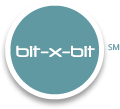Lawyers often obtain, through subpoenas, the IP addresses from an internet service provider (“ISP”) in the hope that they will lead to identifying an ISP’s user-subscriber, who allegedly hacked into a web mail account or device. Once IP addresses are obtained from the ISP’s legal department, typically in letter form, and the ultimate user-subscribers are identified, the ISP’s letter is sometimes offered into evidence without foundation or a qualified sponsoring witness who understands IP addresses, how they are determined, and what it means when they appear in a web mail account log. A new opinion from the Pennsylvania Superior Court, however, reversing a conviction, makes clear that: (1) such evidence must be offered by a qualified expert who understands IP addresses and their significance; and (2) such evidence must be authenticated and qualify under a hearsay exception, most likely as a record of continuous business activity. These basic evidentiary errors resulted in the reversal of conviction.
In a case of first impression, the court in Commonwealth v. Manivannan, 2018 Pa. Super 112 (May 4, 2018), held that lay witnesses’ testimony – a police officer, the alleged victim, and her technically-savvy boyfriend, was erroneously admitted because these witnesses were not competent to testify about the significance of, or to draw conclusions from, the settings in the alleged victim’s Gmail account which showed that it was accessed from certain IP addresses allegedly used by the defendant. The use of data from the Google account settings and the IP addresses (and associated geographic locations) to prove unlawful access was a matter beyond the ordinary laymen because the issues were technical and complex, the court held.
The court also held that a letter purportedly on Comcast letterhead that was “signed” only by Comcast’s “Legal Response Center” lacked a contemporaneous certification establishing the “regularly conducted business activity” exception to hearsay under Rule of Evidence 803(6), and thus it was an abuse of discretion for the trial court to admit the letter into evidence. Therefore, the defendant’s conviction under 18 Pa. C.S.A Section 7611(a)(2) (unlawful use of computer), was reversed and the case remanded for a new trial. A copy of the court’s opinion is available here: Manivannan Opinion IP Address Evidence

